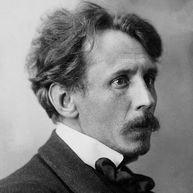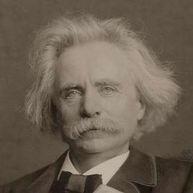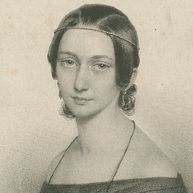2018–2020: Lithuania, Norway, Germany
The first partners for the "European Music Trails" 2018–2020 were Lithuania (national composer M. K. Čiurlionis) and Norway (national composer E. Grieg). The partner institutions were:
Notenspur Leipzig e.V., Leipzig/Germany
M.K. Čiurlionis House, Vilnius/Lithuania: https://mkcnamai.lt/lt/
MB Classics - Opus, Oslo/Norway: https://www.o-opus.no/
Thematically, this first European collaborative project revolved around three composers, all of whom are associated with Leipzig. Edvard Grieg (Norway, 1843-1907) and Mikalojus Konstantinas Čiurlionis (Lithuania, 1875-1911) studied in Leipzig at the Conservatory of Music (now the University for Music and Theatre "Felix Mendelssohn Bartholdy") and then returned to their homelands. They not only enriched the musical history of Leipzig – Grieg even until the end of his life through regular longer stays and the exclusive connection to the C.F. Peters Publishing House – but also strongly influenced the cultural development in their own countries. They absorbed the folk music of their countries and combined it with the Central European musical language and compositional methods they learned in Leipzig. The pianist and composer Clara Schumann (Germany, 1819-1896) taught at the Leipzig Conservatory and made five concert tours to other European countries with her father between the ages of 12 and 18. Many more were to follow, 19 to England alone, and others took her to Belgium, the Netherlands and Switzerland. Thus, she is an exemplar of exchange on a European level – and this already in the 19th century.
Edvard Grieg, Mikalojus Konstantinas Čiurlionis and Clara Schumann are therefore representatives of the common musical heritage of Europe. Sharing this heritage as well – in addition to the exchange between today's musicians and music lovers – is an important goal of the project "European Music Trails."
The project was supported by the Federal Commissioner for Culture and the Media (BKM) in 2017–2019 as part of the European Year of Cultural Heritage 2018.
2017–2019 supported by the Cultural Foundation of the Free State of Saxony. This measure is co-financed by tax funds on the basis of the budget passed by the members of the Saxon State Parliament.
2018–2020 supported by the Creative Europe program of the European Union.











